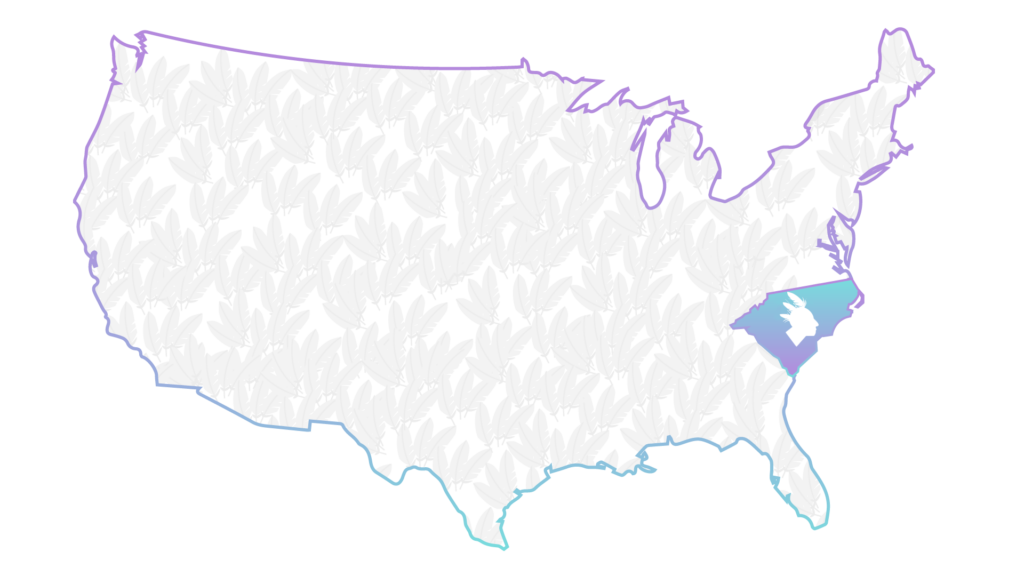Anyone who is not on a black list internationally can incorporate under the CDEZ.
CDEZ Companies are ideal for web3 founders and teams, software developers, freelancers, remote workers, banking and finance, insurance and firms involved in the creation, sale, or management of digital assets.
Yes! To be registered. Individuals have to go through KYC and AML checks in compliance with International and Federal Law.
Our Regulatory Framework allows companies to remotely incorporate under our laws -World-class laws optimized for digital service industries, finance, and digital assets that enhance your business success.
All CDEZ eCompany registration, payments, and updates are all handled online.
The Catawba has a unique settlement agreement, which provides us with the autonomy to make laws and regulations concerning digital industries. Today, we are taking a progressive step into the digital age by leveraging our tribal sovereignty in innovative ways for the benefit of the web3 industry and our people.
The laws for the Zone Authority have been created by examining the laws of other business-oriented jurisdictions in the US. Those laws have been improved by eliminating unnecessary fees and red-tape provisions and including more efficient procedures. Also, the codes for the GEZ have a specific emphasis on facilitating modern electronic commerce. This is something typically not found in state business codes, which often contain provisions dating back a hundred years.
Through the CDEZ, the Nation has decided to take a progressive step into the digital age. We are empowering ourselves and leveraging our tribal sovereignty in innovative ways for the benefit of our people. The CDEZ will result in economic opportunities that did not exist prior.
A Digital Economic Zone (DEZ) is a type of Special Economic Zone focused on digital industries. Special Zones are small geographic areas with different legal, regulatory, and often tax policies than their host Nations. Digital Special Zones are unique because their regulations are tailored to digital, software, internet, and digital asset industries.
Please send us a message to inquires@catawbadigital.zone by clicking on the “Contact us” button on the footer of the website.
In North and South Carolina:
- 1619 Reservation Road, (SC).
- 550 Kings Mountain Blvd Kings Mountain, NC 28086
You can find them on the website in the footer under Terms of Service
No
Through chat support & easy + fast-resolved ticket system. You can also email us at techsupport@catawbadigital.zone
At the moment, we are only accepoting new LLCs. However, we have this feature on our pipeline. To track them, visit our public Trello board.
At the moment, we are only accepoting new LLCs by natural persons. However, we have this feature on our pipeline. To track them, visit our public Trello board.
We request your name, address, ID and selfie.
No. Do make sure you have an authenticator on your phone or browser, that may be downloaded from an app store or as a chrome extension.
Within 24 business hours.
At present, only individuals may register Companies as they must be cleared through the KYC & AML processes.
After you complete your eCompany application, apply for an Employer Identification Number (EIN). You can do this by using the IRS website application. For the address and location portion of the form, put the company address as appears on your Certificate of Organization.
The North American Industry Classification System (NAICS) is the standard used by Federal statistical agencies in classifying business establishments. Financial Institutions often ask companies to define themselves under this system during their onboarding process. For streamlined access to online banking, choose what your LLC’s NAICS number is prior to opening a bank account.
After you set up your company through our platform, submit this application to begin onboarding for online banking with one of our banking partners.
- Yes! To be registered. Individuals have to go through KYC and AML checks in compliance with International and Federal Law. Our Regulatory Framework allows companies to remotely incorporate under our laws. Worldclass laws optimized for digital service industries, finance, and digital assets that enhance your business success.
- All CDEZ Company registration, payments, and updates are all handled online.
- Policies for banks vary between institutions, but the organization we have spoken to, they have online banking, and allow for foreign owners, so long as they pass their internal KYC/AML/BSA requirements.
- Being a U.S. jurisdiction, the CDEZ benefits from the extensive network of U.S. treaties and trade agreements. This provides CDEZ-registered businesses a competitive edge in global markets. Many popular digital nomad jurisdictions don’t offer the same level of access to international markets due to less favorable trade agreements. With CDEZ, you enjoy superior global business opportunities.
- The CDEZ offers a platform that facilitates remote, online management. This feature is specially designed keeping in mind the needs of digital nomads. You can seamlessly manage your business, interact with necessary regulatory frameworks, and ensure compliance, all from the comfort of wherever you are in the world
- Absolutely! Businesses incorporated within the CDEZ are recognized as U.S. entities. This means your CDEZ-registered business can obtain a Dun & Bradstreet D-U-N-S Number, making you eligible for an Apple Developer’s license. This allows you to publish your software applications on platforms like the Apple App Store
Until your company is dissolved.
Users can register LLCs, but in the coming months we will allow the registration of DAO-LLCs and DAO UNAs, C-Corps, Non-Profits, Unincorporated Non-Profit Associations, and others.
The CDEZ is not a tax play. Individuals that incorporate their businesses in the CDEZ will still be subject to corporate and income taxes in the jurisdiction where they permanently reside.
The Zone is managed by a Zone Authority. The Zone Authority is in charge of exploring, drafting, modifying and approving regulations. The Zone Authority is headed by 5 Commissioners. These have been appointed by members of the elected leadership, Catawba Corporations (the business arm of the Nation), and the for-profit managing entity. The Zone Authority is backed by a team of experts in web3, fintech, governance blockchain and digital assets.
Yes.
The Zone is compliant with SEC regulations, while pushing for innovation instead of prohibiting.
The Zone Authority has commenting periods for upcoming regulations. This allows companies, communities and the industry input into future rules. The commenting takes place on several platforms, including Discord, forms and email.
Your company will be governed by the laws of the Catawba Indian Nation and the regulations of the Zone Authority. You can find these by visiting www.zoneauthority.io
The Nation’s sovereignty allows it to craft laws and regulations to attract businesses to domicile within it. The laws and regulations provide a streamlined, best practice-inspired, business environment, helping the CDEZ compete with other jurisdictions. There will be limited tax incentives, but most SEZ success worldwide is not attributed to tax incentives but to stable regulatory environments.
The CDEZ intends to allow its companies to opt into a GDPR compliant framework, allow them to facilitate digital trade with European customers.
The federal U.S. government, Congress specifically, has exclusive authority over Indian Tribes – not individual states. Article 1, Section 8 of the Constitution states that “Congress shall have the power to regulate Commerce with foreign nations and among the several states, and with the Indian tribes”. This determined that Indian tribes were separate from the federal or state governments and that the states did not have power to regulate commerce with the tribes.
As a result, Tribes as a general rule have the same status as State for civil law, commercial law, and business regulations, unless derogated by Congress, or voluntarily derogated through agreement with States. The Catawba Indian Nation only has one compact with the State of North Carolina (the State surrounding the Zone’s operation for company registration), and it is exclusively about gaming.
No, unless there is an agreement on that beforehand.
The GEZ will report twice a year to the Catawba Nation General Council and to the Catawba Executive Committee on a quarterly basis.
We don’t hold your personal information (such as social security number or government ID). If you’re a CDEZ company founder, to request and process the deletion of an Entity Registry, additional steps may be required, like the dissolution, winding up, and/or termination of the respective entity.
CDEZ processes your data:
- To provide the CDEZ Services to you pursuant to our contract with you;
- Under the laws of the Catawba Nation, specifically Section 3 of Title II of the Civil Zone Ordinance, which states: “(4) To gather, retain, and analyze data on businesses and activities taking place under the Green Earth Zone’ jurisdiction sufficient to monitor compliance with legal obligations and assess the overall performance of the Zone regarding economic, social, and environmental impacts.”
- In pursuit of its legitimate interests in operating our Services and business; and (4) with your consent. In some cases, CDEZ may process your data to comply with applicable law, legal process, or regulation.
Examples of CDEZ processing your data to provide you with the CDEZ Services include:
- Managing, maintaining, operating and protecting the Green Earth Zone. The CDEZ and the Zone Authority will use your data to develop and improve the governmental bodies and functions necessary to provide the CDEZ Services.
- Providing, updating, maintaining, and protecting our Services and business. For example, when you set up a company we have access to some of your personal information, such as name and email. We will provide them to you when you ask us to. We also analyze how you use the Services to help us improve our services and allow you to better use our tools and manage your entity and to allow you to stay on top of your most important work.
- We might also use input you give us after reaching out to us through online means, to create our pipeline of legal and technical features.
- Troubleshooting issues you may encounter with the CDEZ Services. If you contact us with questions or concerns about the Services, we may use your personal information to respond.
- Billing, account management, and administrative purposes. If you sign up for a Personal Registry or purchase a paid Entity Registry for a CDEZLLC, we may collect and process payment information, including your name, credit or debit card information, SSN, billing address, and details of your transaction history.
- Sending you emails and other communications. We may contact you about important changes to our Terms of Services and Service-related notices, CDEZ regulations and news, as well as other notices that are applicable to registered companies. These communications are considered part of the CDEZ Services and you may not opt out of them.
Examples of CDEZ processing your data in furtherance of its legitimate interests in operating our Services and business include:
- Understanding how you use our Services and improving them.
- Researching the needs and requirements of companies that wish to incorporate in the CDEZ.
- Promoting CDEZServices that are most relevant to your interests.
- Investigating and preventing security issues and abuse of the CDEZ Services or CDEZ users.
Examples of CDEZ processing your data with your consent include:
- Sending you notices, communications, services of process, regarding the CDEZ and related to the management and operation of your entitiy.
- Sending you marketing materials about our Services. If you do not wish to receive these materials, simply click the Unsubscribe link in any email, or update your preferences in the Notifications section of your CDEZ account.
- Connecting your CDEZ account with other third-party services via CDEZ APIs, if applicable.
- Collecting feedback from you to improve our Services and develop new features.
We collect information about how you use the Services when you create a user or register a company or/and when you reach out to us via one of the customer service platforms, including Zendesk. We may analize which actions you take in your CDEZ account, to efficiently and reliably provide the CDEZ Services. We also use such information to improve our Services and develop new features, protect CDEZ users, and, in some instances, promote the CDEZ Services.
To improve our Services, we collect information about how you interact with our Services and with the entity you registered to understand what entity characteristics and features are most useful to you and improve them.
In order to provide, improve, protect, and promote our Services, CDEZ shares your personal information with trusted third parties, as well as other CDEZ Companies.
Trusted third parties are companies or individuals that CDEZ engages to provide, improve, protect, and promote CDEZ Services. For example, trusted third parties may access your information to provide data storage services, IT services, or customer support services, but will only do so to perform tasks on CDEZ’s behalf. CDEZ remains responsible for the handling of your information per our instructions. Trusted third parties may include:
- GEZ InC.
- Stripe
- Trulioo
- Amazon Web Services, Inc.
- Salesforce.com, LLC
- Alphabet,Inc
- Zendesk, Inc.
- Yes! To be registered. Individuals have to go through KYC and AML checks in compliance with International and Federal Law. Our Regulatory Framework allows companies to remotely incorporate under our laws. Worldclass laws optimized for digital service industries, finance, and digital assets that enhance your business success.
- All CDEZ Company registration, payments, and updates are all handled online.
- Policies for banks vary between institutions, but the organization we have spoken to, they have online banking, and allow for foreign owners, so long as they pass their internal KYC/AML/BSA requirements.
- Being a U.S. jurisdiction, the CDEZ benefits from the extensive network of U.S. treaties and trade agreements. This provides CDEZ-registered businesses a competitive edge in global markets. Many popular digital nomad jurisdictions don’t offer the same level of access to international markets due to less favorable trade agreements. With CDEZ, you enjoy superior global business opportunities.
- The CDEZ offers a platform that facilitates remote, online management. This feature is specially designed keeping in mind the needs of digital nomads. You can seamlessly manage your business, interact with necessary regulatory frameworks, and ensure compliance, all from the comfort of wherever you are in the world
- Absolutely! Businesses incorporated within the CDEZ are recognized as U.S. entities. This means your CDEZ-registered business can obtain a Dun & Bradstreet D-U-N-S Number, making you eligible for an Apple Developer’s license. This allows you to publish your software applications on platforms like the Apple App Store
- Web3 is constantly threatened by lack of regulatory clarity, too bureaucratic or unstable regulatory environments. Without any jurisdiction to support continued growth, companies are often regulated unevenly, unpredictably, and sometimes aggressively.
- Having regulatory clarity is important to stabilize and grow this trillion dollar market.
- The fundamental building blocks for digital asset businesse.
- Rules for DAOs, NFTs and Stablecoins.
- The CDEZ’s Digital Assets Regulation can be found here. Title VI. Chapter 10. of the Zone Enabling Law reads: “Digital Asset” means a representation of economic, proprietary, or access rights that is stored in a computer readable format and is either a Digital Consumer Asset, Digital Security or Virtual Currency, and qualifies as a type of intangible personal property under the Zone Civil Ordinance. The Zone Authority shall define, classify, and regulate Digital Assets and their treatment under this Title.
- Wyoming was the first state to:
- Enact blockchain-enabling legislation.
- Establishes that digital assets such as cryptocurrencies and non-fungible tokens (“NFTs”) are intangible property.
- Digital Assets are covered by the general Wyoming scheme of property rights:
- Property protection and enforcement.
- Sale, lease, licensing, etc.
- For a full comparison between our Zone’s Digital Assets Regulation and Wyoming’s, scroll down.
- Wyoming was the first state to:


